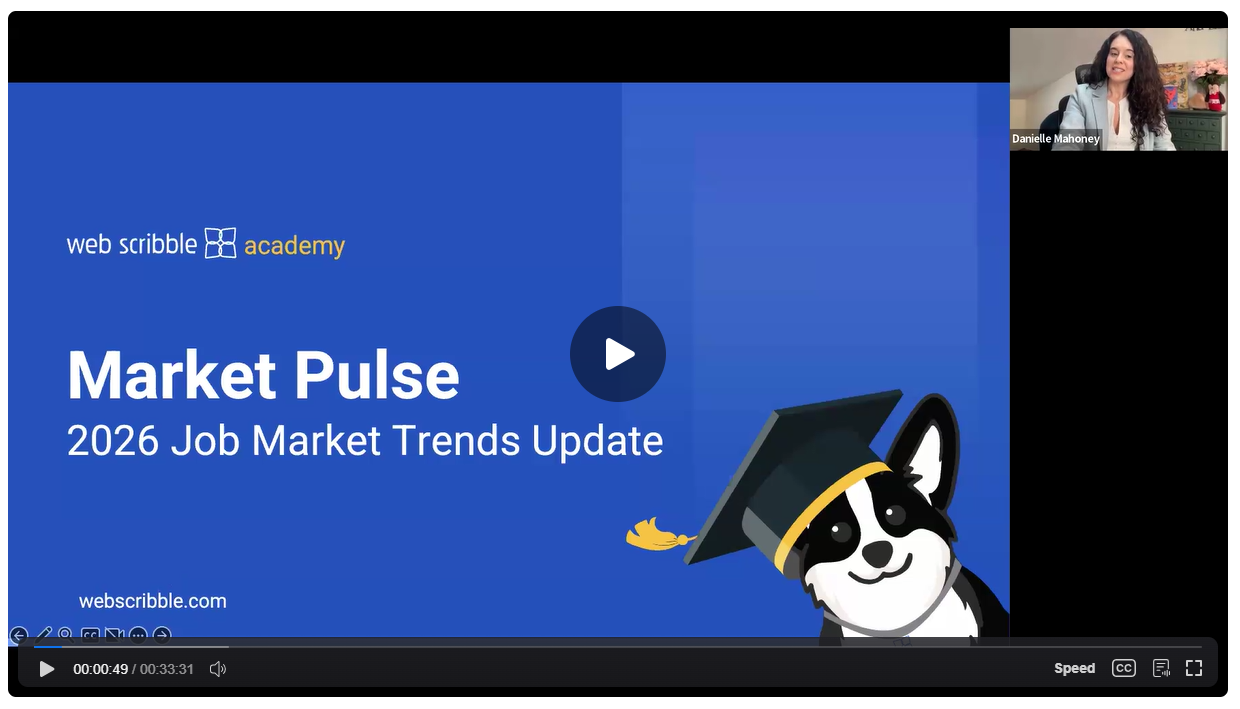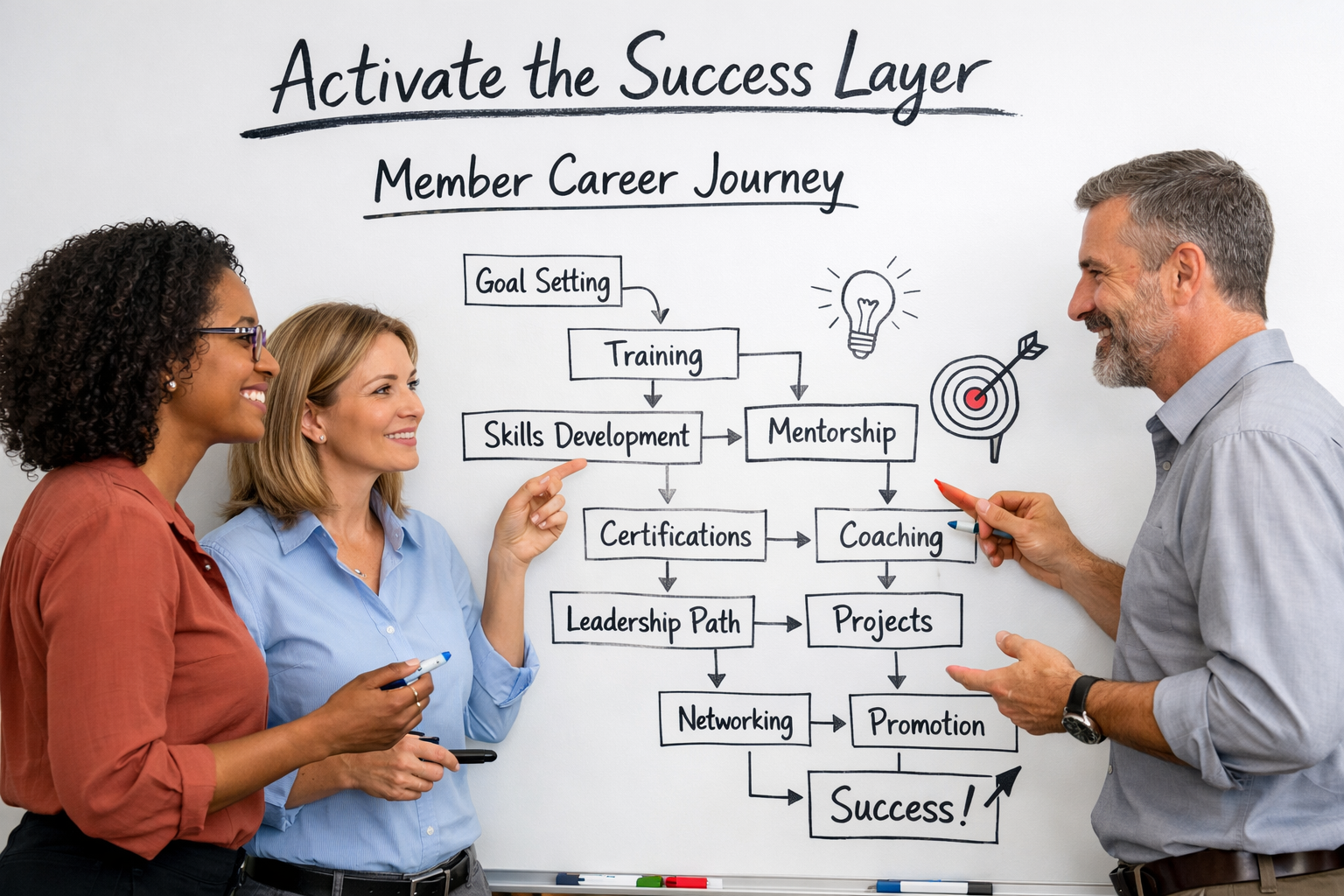Virtual career fairs are big-time opportunities; just like in-person career fairs, they can feel intimidating. This post aims to give you some advice on how to make the most of your time and come out feeling prepared — not just for the career fair but also for any interviewing or networking events you might be doing afterward.
Prepare for a Virtual Career Fair
The best time to prepare for a career fair is before you go. The more prepared you are, the more confident you’ll be, and the better your experience will be. Take advantage of the career center to help get you prepared. Whether it's in person or online, you'll want to do your research ahead of time. Look up participating companies by visiting their company profile pages as well as their website. Research the positions they’re hiring for, their culture and mission, as well as any reviews from current or previous employees.
Sift through your existing online social networks and look for connections who might have insight into the company that you hope to land an interview with. Your research will allow you to get a better feel for the company and what career opportunities are available there.
Practice your “elevator pitch” — a short overview about your background, studies, and career goals. Practice with a friend or family member, so you’re ready when it’s time to introduce yourself to a recruiter.
Update your resume
It’s best practice to keep your resume updated regularly. This way, you'll always have an accurate record of skills, accomplishments, and workplace timelines. If it’s been a while since you last looked at your editable resume doc, or if you don’t have one, take some time before the career fair to take a look and update any information or work-related experiences that will make you stand out from other candidates.
If you’re a recent graduate with no resume, consider filling your resume with your internship experiences, classwork or relevant projects, and other jobs where those skills would translate to desired positions in your industry. Additionally, consider any online courses or certifications you’ve received that would make you a more marketable candidate!
The Interview
Now that your resume is updated, it’s time to start reaching out to employers to schedule interview times with them. Keep track of who accepts your requests and get them scheduled in your calendar so you don’t accidentally double-book. This will help you plan your time accordingly and give you enough time to prepare for each interview. Also, be on the lookout for employers reaching out to you for interviews! If you have a job seeker profile set up through your association’s career center, ensure your updated resume is readily available for employers to view, and be sure your contact information is correct.
Your initial interview during the career fair may be the beginning of a more formal interview process. With that in mind, first impressions are everything! If you’re meeting for the first time virtually, be sure to dress the part and have a stable internet connection. Keep distractions to a minimum, and keep your phone away during this time.
Ask Questions
During your interview, you'll often be answering questions, and towards the end, you’ll have the opportunity to ask some. If you're thinking about what questions you want to ask, it can help to have a list of 2-3 questions prepared ahead of time so you're not caught off guard or, worse, completely blank and forget your already well-thought-out questions.
Some examples of questions to ask are:
- What are the current goals that the company is focused on, and how does this team work to support hitting those goals?
- What skills or characteristics do you believe it takes to be successful in this role?
- What are the most important things you’d like to see someone accomplish in the first 30, 60, and 90 days on the job?
- What kind of challenges have previous employees faced in this role, or what challenges do you believe a person in this role will face?
If you are a recent graduate, some questions you may also want to ask are:
- Is there anything else I can tell you about my qualifications for the job?
- Who will I work with most closely?
- How would you describe the work environment here—is the work typically more collaborative or more independent?
Show Your Passion
It's often said that enthusiasm is contagious. Think of it this way: If a person interviewing you looks at you and sees someone excited to be there, that excitement will probably transfer over to them and make them feel excited. Think about your excitement as an opportunity to show why you're a great fit for their organization. Not only do you want to express how excited you are for this opportunity, but you also want to show that you're a hard worker and that you're excited about being there. Pro-tip: Don’t be afraid to talk about your activities, accomplishments, and life outside of work!
Follow up
The follow-up process is an essential part for any job seeker. Following up with employers after you’ve interviewed or talked with them is a crucial step in landing a job. A day or two after your interview, send the individual you met with a follow-up email thanking them for their time. Since they have probably interviewed many people in that short period of time, reintroduce yourself and use your notes to include personal anecdotes within the email so they can also easily recall your conversation. If you have examples of your work, be sure to link to them or include them as attachments.
Personalizing doesn’t have to be difficult. Your email can include topics you discussed that you both had interest in or anything you enjoyed about the conversation that was memorable. Let them know if you’d be interested in moving forward with any potential next steps in the interview process with something as simple as “I look forward to hearing back from you about any next steps.” This helps speed the process up so they know you are interested in the position.
Our main takeaway for having a successful career fair, virtual or in-person, is to stand out from the crowd by putting yourself out there. If you are confident and comfortable, you will be able to make the most of any opportunity that might come your way.
%201.avif)





